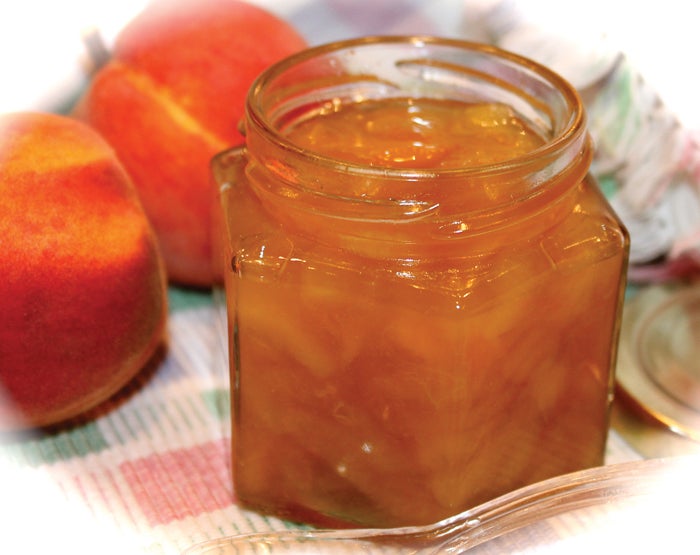As summer approaches, can canning be far behind?
Published 12:00 am Friday, April 12, 2019

- Submitted photo Extension agent Toi Degree will again offer canning classes this summer, including one on preserves and butters.
Spring’s here and that means the days are getting longer, the flowers are blooming, pollen is at its peak and it’s time to start the gardens.
And in no time summer will be here and with its canning season. Canning is an age-old tradition that has been passed down generation to generation and is an excellent way to increase your consumption of local food. Canning or home food preservation will allow you to capture the bounty of a particular crop while in season and extend its availability throughout the year.
Each year I am questioned about what canning classes I will offer. I try to offer at least two per year. Of course, all things considered, the demand for the class determines if we will have it.
There is also something to be said about variety, which they say is the spice of life. So to add some variety this year I have changed things up a great deal and I am offering canning classes that I haven’t in the past. I will begin in May with fermentation. Fermentation 101 will be held May 23 at 6 p.m.
As you may have read, there are a lot of health benefits to eating fermented foods which are rich in probiotic bacteria. By consuming fermented foods you are adding beneficial bacteria and enzymes to your overall intestinal flora, increasing the health of your gut microbiome and digestive system and enhancing the immune system.
During Fermentation 101 we will discuss the fermentation process that food undergoes, ideal temperature, and how salt favors the growth of desirable bacteria while inhibiting the growth of others. Participants will also have a chance to make their own sauerkraut they can take home with them. This workshop will be two hours and will cost $20.
• July 16 — Butters and Preserves — Fruit butters are sweet spreads made by cooking fruit pulp with sugar to a thick consistency. Spices are often added. Meanwhile, preserves are small, whole fruit or uniform size pieces in clear, slightly gelled syrup. The fruit should be tender and plump. In this workshop, the participants will learn the key ingredients needed to make jellied fruit products and how the correct combination of fruit, pectin, acid and sugar makes the perfect jellied product, combined with the fruit, to give each spread its unique flavor and color. This workshop will be 6 to 8 p.m. and the cost will be $10.
• July 23 — Pickles — Join me for some pickle making and sampling, too. In the making of fresh-pack pickles, cucumbers are acidified quickly with vinegar. Each participant will learn all about the science of canning and pickle making, gain hands-on experience with making their own and take a jar home for later. This workshop will again begin at 6 p.m. and end at 8 p.m. The cost of this workshop is $20.
I will also do my pressure canner testing June 6 through Aug. 1, 10 a.m.-noon at the North Carolina Cooperative Extension office. This will allow you to make sure your canner is safe for canning and that you have all the recipes you need when you are ready to begin. For reliable, up-to-date canning instructions here are a few places to visit — “The Ball Blue Book of Preserving,” “So Easy to Preserve” and the recently revisited edition of the USDA Complete Guide to Home Canning. For more information on these publications visit these sites:
Ball Blue Book Of Preserving: http://www.freshpreserving.com/pages/home/258.php?pid=292&product=304
National Center of Home Food Preservation: www.uga.edu/nchfp/
So Easy to Preserve: http://www.uga.edu/setp/index.html
For more information, contact Toi N. Degree, family and consumer education agent, Rowan County Cooperative Extension Service, at 704-216-8970 or e-mail toi_degree@ncsu.edu.



